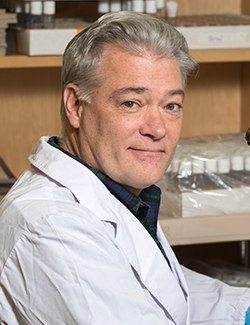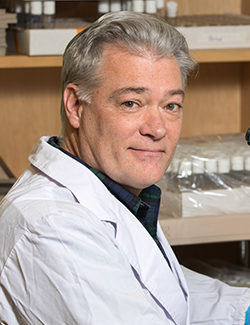Michael Tiemeyer


Short Biography:
Dr. Tiemeyer received his B.A. in biology in 1982 and his Ph.D. in neuroscience in 1989 from The Johns Hopkins University. He was a Helen Hay Whitney postdoctoral fellow in developmental neurobiology at the University of California at Berkeley. Prior to joining the CCRC faculty, Dr. Tiemeyer was a faculty member in cell biology at Yale University School of Medicine and Director of Biochemical and Clinical Analytics and New Methods Development at Glyko/Biomarin, Inc. Full publications: 27.
Research Interests:
The surfaces of all eukaryotic cells are richly endowed with a diverse array of complex glycoconjugates. Therefore, carbohydrate moieties linked to protein, lipid, and glycosaminoglycan form the interfaces at which cell-cell interactions occur. Consistent with their subcellular location and structural diversity, specific oligosaccharides function as cell-surface tags that allow cells to appropriately interact with each other and with their local environment. In fact, cell surface carbohydrates are among the most discriminating markers for cellular differentiation and pathogenesis. We utilize genetic, molecular, and chemical techniques in vertebrate (mouse) and insect (Drosophila) model systems to study two aspects of carbohydrate expression. First, we investigate the influence of cell surface carbohydrates on development of the nervous system. We identified and characterized a novel carbohydrate binding protein (Gliolectin) that mediates the fidelity of axon pathfinding early in neural development. Second, we study mechanisms that control tissue- and stage-specific oligosaccharide expression. We discovered that a member of the Toll-like receptor family (Tollo) influences tissue-specific glycosylation through cell-cell communication. Our results have implications for facilitating regeneration of axon pathways in the nervous system, for understanding innate immunity and tissue surveillance, and for controlling the cellular changes that precede tumor metastasis.
